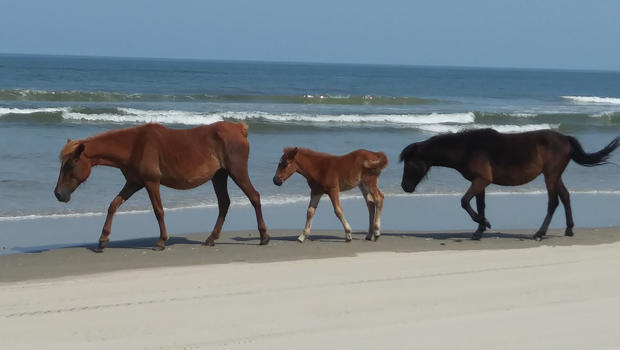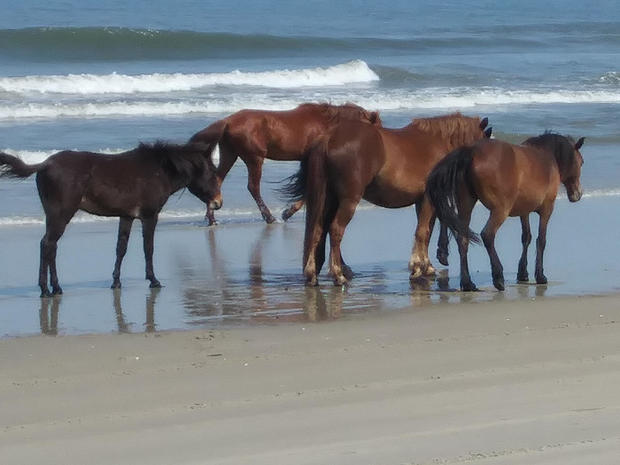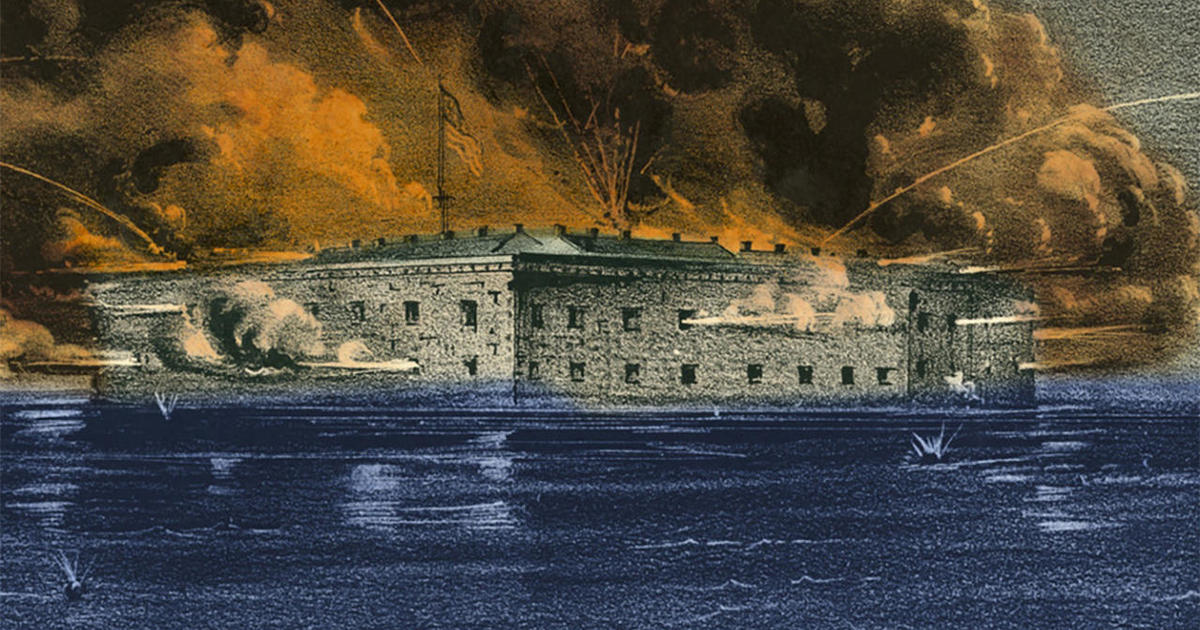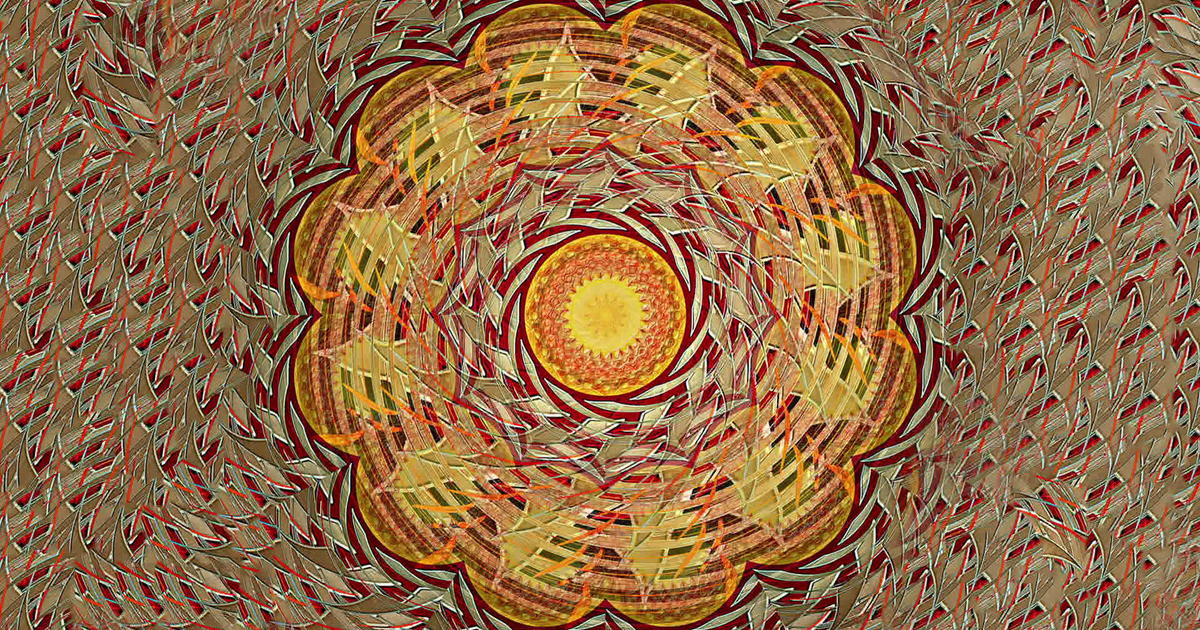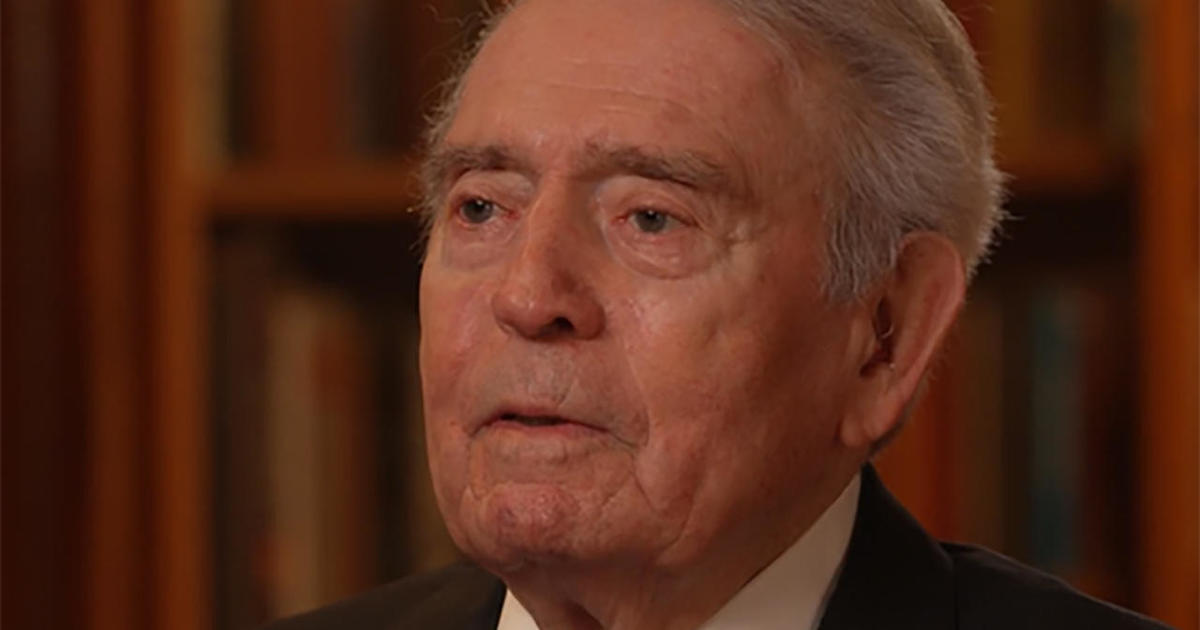Nature up close: Wild horses of the Outer Banks
By "Sunday Morning" contributing videographer Carl Mrozek.
We've all seen plenty of images in movies and on TV of mustangs on the prairies, high plains and deserts of the American West. But wild horses on an East Coast beach? Not so much, except possibly recent escapees from a ranch or farm, because everyone knows that wild horses and beaches don't mix.
But they would be wrong, as there have been wild horses in and around the Outer Banks of Virginia and North Carolina for half a millennium – more than twice as long as there has been a United States of America.
The history of the "Bankers," as they're nicknamed, harks back to the earliest days of Spanish exploration and colonization of North America, in the early 16th century, when Lucas Vázquez de Ayllón, launched a colony around Cape Fear. However, he and his minions enraged local natives by enslaving some of their children and sending them to the West Indies to toil on plantations. Eventually tensions boiled over as the natives rebelled and drove the Spaniards out of North Carolina and into Florida. In the tumult, the Spaniards abandoned many of their horses.
Apparently some of these mustangs were caught and raised by the natives, while others adapted to life in the coastal salt marshes, soon gaining a reputation as tough, hardy horses that thrived in the coastal zone, but which quickly died off when rounded up and sent inland where their new food fare did not suit their specially-evolved constitutions.
The Bankers proliferated throughout the Outer Banks from the Virginia state line to the Shackleford Banks 170 miles to the south. At their peak, they numbered in the thousands even well beyond the mid- 20th century. However, the increasing popularity of the Outer Banks as an oceanfront playground gradually shrank their share of the barrier beaches and marshes to a fraction of what it once was. Consequently their population dwindled into the low hundreds by the end of the 2oth century, with one population on the southern end of the Outer Banks and another on the north end.
Today both herds retain the characteristics of Spanish mustangs, including having one less vertebra than most other horse breeds, plus their slender elegance and medium size, shaggy manes, even-temperament and endurance. In a nutshell, they are handsome, winsome horses.
Their ability to adapt to the harsh environment of the barrier beaches which is virtually devoid of standing fresh water and which supports only hardy vegetation, served them well for nearly five centuries. However, the proliferation of roads and beach houses throughout the Outer Banks has left them with less and less habitat. According to the Corolla Wild Horse Fund, today's herd shares 7,544 acres with 700 houses (plus thousands of people, pets and vehicles).
Managing the northern Outer Banks for the benefit of wild horses, in addition to the tens of thousands of seasonal tourists and several thousand year-round residents, has proven challenging, requiring the cooperation of many agencies and individuals. Since 1989 this campaign has been spearheaded by the Corolla Wild Horse Fund, which conducts an active public education campaign to secure permanent protection for the Corolla herd at a genetically-sustainable level of at least 110 horses. They also work with local tour guides and law enforcement to protect the horses from harassment by tourists and residents, including maintaining at least a 50' safety zone between the horses and people, pets and vehicles.
The Corolla Wild Horses Fund is also championing legislation, the Corolla Wild Horses Protection Act. Similar legislation already protects the southern herd of "Bankers" on Shackleford Banks, at the southern end of the Outer Banks. In 2010 a state law spearheaded by a letter-writing campaign by local school kids declared the colonial Spanish mustang as the state horse of North Carolina, albeit without the long-term protections currently being sought by advocates.
Local grassroots efforts to permanently protect wild horses of the Outer Banks enjoy broad support partly thanks to the importance of these herds to the local tourism business. Tens of thousands of tourists take guided dune buggy tours of the northern Outer Banks specifically to see and photograph "Bankers." Many of them also shop and eat locally and stay in nearby motels, bed and breakfasts, etc.
Despite their popularity, the future of wild horses in the northern Outer Banks remains uncertain. Even though they've been designated a critically-endangered horse by international equine agencies, they are not recognized as a native species by the U.S. Fish & Wildlife Agency, which manages the Endangered Species program. Hence they receive no special protection by the federal government, which manages some of the land they now utilize.
The native species status of horses remains a bone of contention among scientists, and between federal authorities and wild horse advocates who argue that not only did horses originate in North America, but that they did not all die out during the last Ice Age, with their genetic material now part of the wild equine genome in North America. While no one is specifically making that assertion on behalf of the wild horse herds on the Outer Banks, it does support the contention that many of America's wild horses are "returned natives," or a reintroduced native species, much like some populations of wolves, elk, and big horned sheep. Moreover, that once reintroduced, their behavior and ecological contributions are much like those of their native-born counterparts, and that they should be granted permanent resident status along with all of the pertinent protections.
For more information about the wild horses of the northern Outer Banks and the campaign to protect and preserve them visit the Corolla Wild Horse Fund.
See also:
- Follow Carl Mrozek on Facebook
- Nature up close: White deer
- Behind the scenes: Filming bats by Carl Mrozek
To watch extended "Sunday Morning" Nature videos click here!
